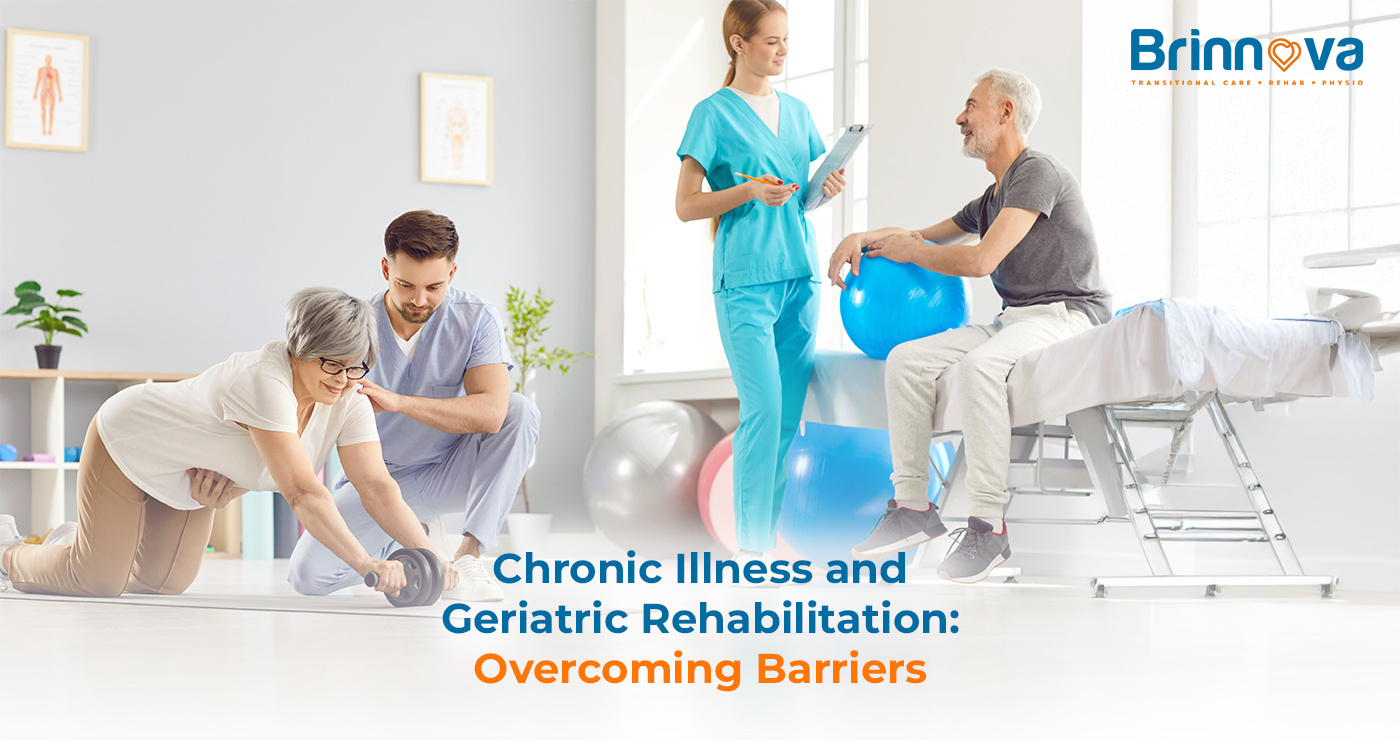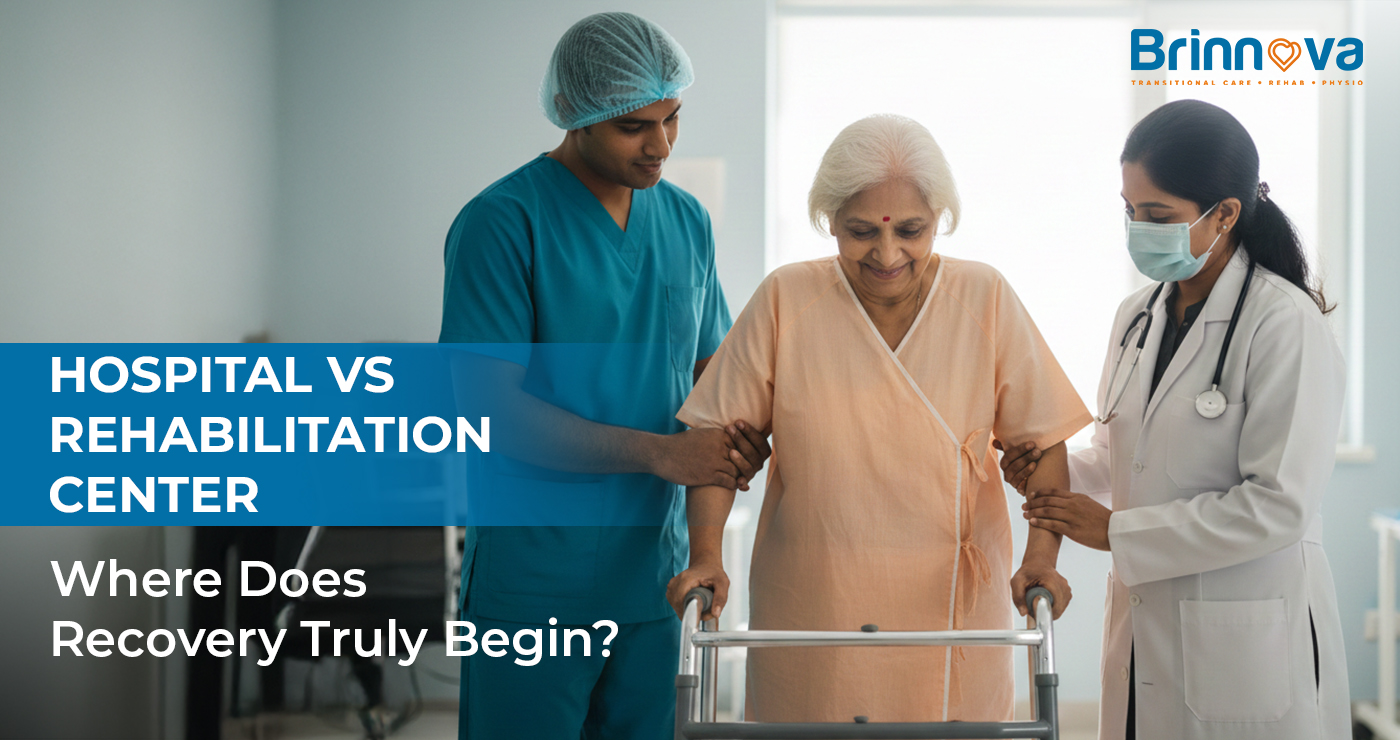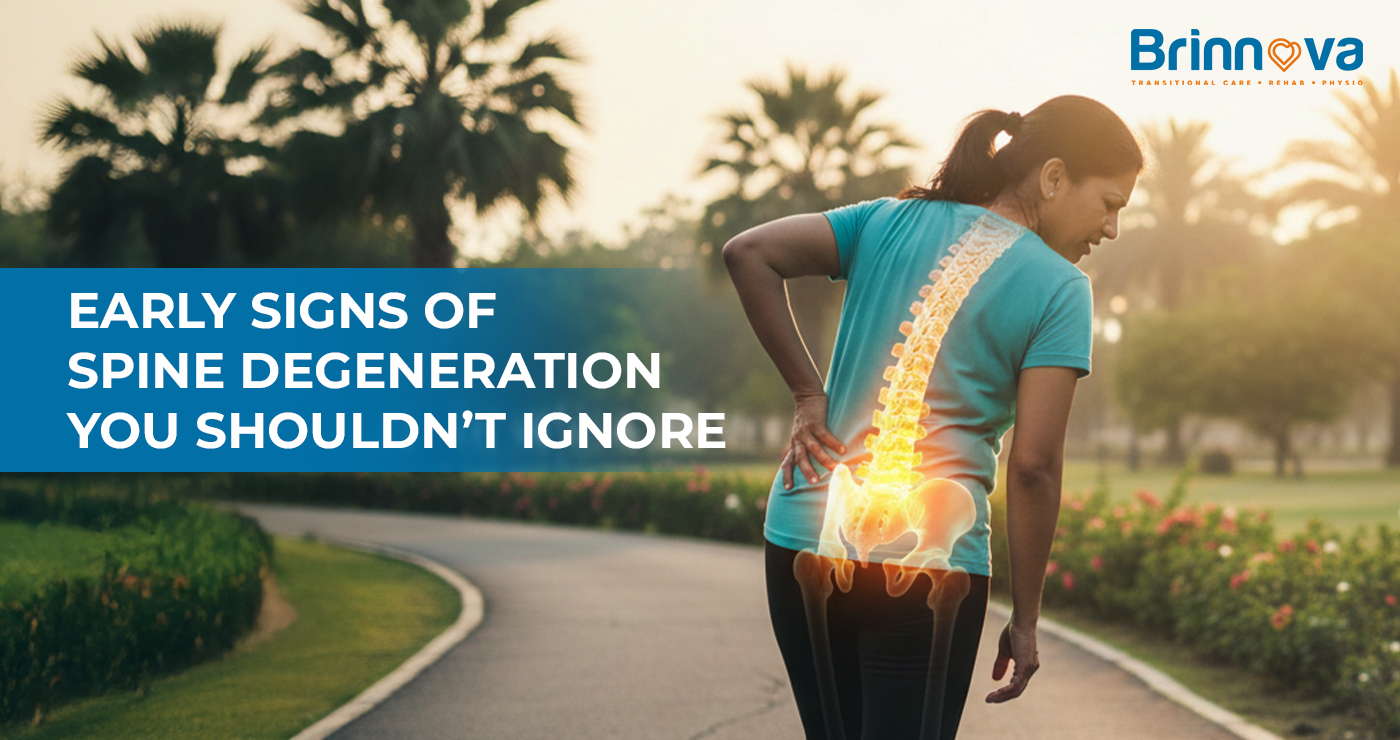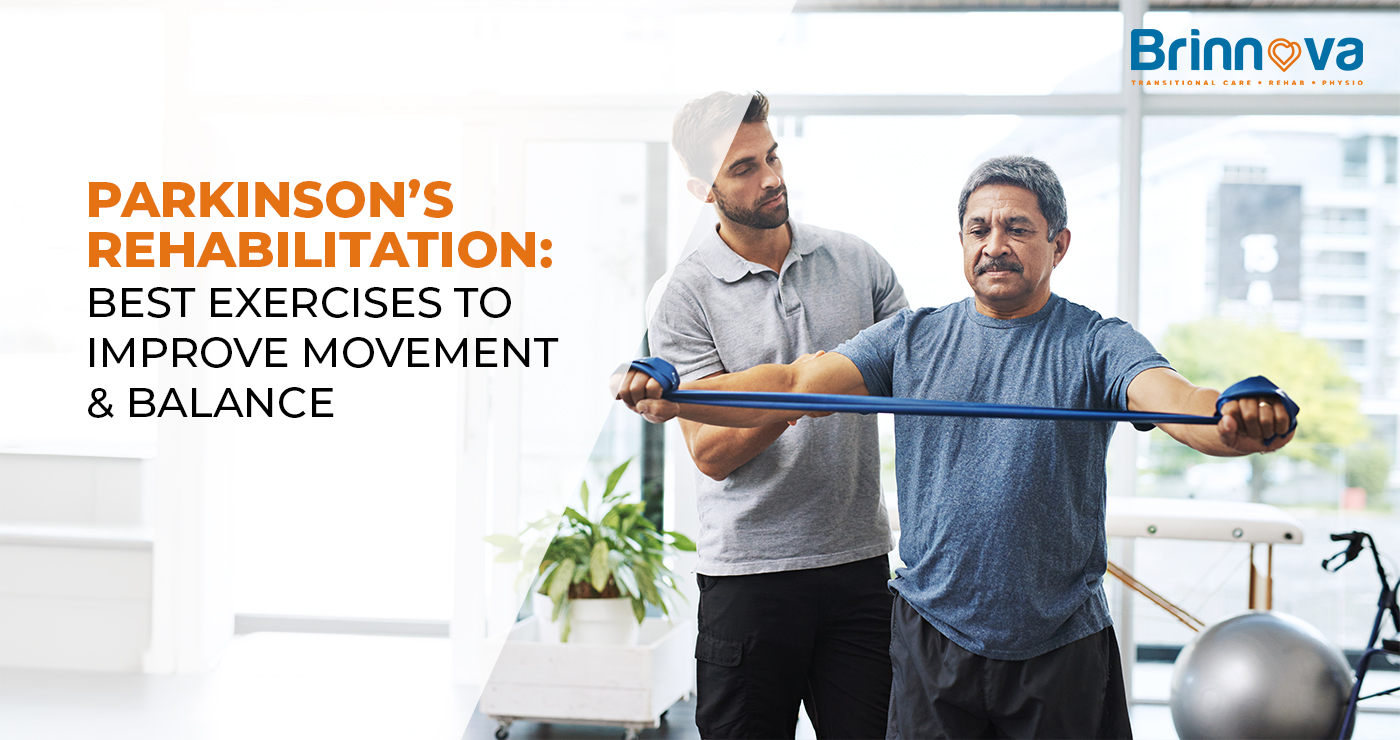Chronic Illness and Geriatric Rehabilitation: Overcoming Barriers
It is called a chronic illness if this condition goes on for a long time and requires people to rely on ongoing medical support, making it hard for them to do ordinary daily tasks. Having such conditions would decrease elderly people’s freedom of movement, ability to handle everyday tasks, and comfort. Knowing “what is a chronic illness” and what the first thing to do is. It is necessary since it assists people dealing with the challenges during geriatric rehabilitation. Since looking at the causes of chronic illness and mental health issues is not easy, having a proper plan will enable them to return to their usual daily life.
How Do Chronic Illnesses Impact the Elderly?
Arthritis, diabetes, heart diseases and other lung-related diseases in individuals are some of the diseases to which ageing predisposes individuals. Through these diseases, individuals may become incapable of performing their normal activities, particularly in walking, maintaining body balance, and the utilisation of muscles. It is common to get chronic illnesses due to the genes they possess and the choices they make, which may involve not eating well and damaging their bodies by not exercising. Tiredness, pain and stiffness make people with chronic illness unable to complete all their daily activities.
Why Is Geriatric Rehabilitation Important for Chronic Illness?
Both physical and mental health of seniors are the primary focus of geriatric rehabilitation. The programme gives patients treatments chosen for them, which help healing, progress muscle growth, and ensure they can remain independent with their chronic condition. Since it takes into account elderly people’s needs, this type of rehabilitation greatly benefits them.
- Personalised Care Plans: Care plans are adjustable and made considering each elderly person’s health history and daily needs.
- Mobility and Flexibility: Strengthening and improving joint range of motion from geriatric rehabilitation reduces a person’s chances of falling and enhances balance.
- Pain Management: Exercise and therapy may also be used to reduce common pain so that you feel much better.
What Are the Common Barriers to Geriatric Rehabilitation?
The advantages of the rehabilitation process are obvious, whereas numerous factors, such as financial costs or even ignorance, prevent older adults from engaging in the geriatric rehabilitation process. Part of the barriers include:
- Lack of Awareness: Not every old person and their family members are aware of how useful rehabilitation can be in managing chronic conditions. Several individuals do not understand what a chronic illness is and how rehabilitation can cure the symptoms.
- Misconceptions About Safety: Some of the seniors believe that involving oneself in physical rehabilitation may not be safe in case they manage different health issues.
- Accessibility Issues: The problems of transport, the fear of experiencing pain, and the stigma attached to the use of rehabilitation services may prevent elderly people from obtaining the required care.
- Financial Constraints: The issue of cost is another major problem facing the elderly, since not all of them can afford the cost of therapy and other tools required.
How Can Geriatric Physiotherapy Help in Chronic Illness Management?
Geriatric physiotherapy is of great significance when it comes to the management of chronic illnesses affecting the elderly. Should you utilise this kind of care, it will be specifically designed with older adults in mind and will take into account which chronic illness symptoms, abilities, and goals older adults possess. A few of the important advantages are:
- Tailored Exercises: Physical exercises are chosen and used with the person’s health status in mind to be safe for the individual.
- Improved Mobility: Geriatric physiotherapy increases flexibility in joints and muscle power to prevent stiffness and improve someone’s sense of balance.
- Prevention of Chronic Illness: Regular rehabilitation can render the progression of certain chronic diseases manageable and reduce the number of potential complications.
What Influence Does Mental Health Have on the Geriatric Rehabilitation Process?
Other than physical rehabilitation, the mental health care of an individual is also highly recommended for people with chronic conditions as they age. As soon as one receives the diagnosis of a long-term illness, the natural reaction is to be so upset that it feels like depression, frustration, and anxiety. These emotions tend to augment the physical health complications of the patient, causing more hindrances to rehabilitation.
These mental health problems are managed through rehabilitation in the case of the elderly by providing:
- Psychological Support: Counsellors assist the aged individuals by motivating them and giving them tips to overcome the emotional aspects of their chronic diseases.
- Improved Self-Esteem: As the rehabilitation process improves, the self-esteem of the people gets enhanced so that they are motivated to continue participating in the therapy.
- Social Engagement: Rehabilitation can involve group membership or community assistance, which helps the elderly persons not to feel isolated and associate with other individuals in the same predicament.
If seniors cannot go to rehabilitation centres, technology can give them an option. This includes:
- Telemedicine and Virtual Consultations: Since remote consultations are available, elderly people do not have to visit a clinic to learn about their rehabilitation plan.
- Exercise Apps and Videos: People can still do their rehabilitation exercises at home by following the videos and apps available on the Internet.
- Monitoring Tools: Tools that are worn or used on a phone allow healthcare providers to observe the progress of patients and adjust their rehab as required.
Brinnova: Empowering Seniors to Overcome Chronic Illness
It is not simple to look after a chronic condition in senior people, yet if they get the right care, they can manage their health again. This type of rehabilitation makes it possible for older people to have improved mobility, independence, and mental health as they deal with chronic illnesses.
When families and carers require support for an elderly person living with a chronic illness, special rehabilitation programmes are available to offer the required help. Older people at our clinic benefit from unique geriatric rehabilitation that helps them maintain their health and live on their own.




